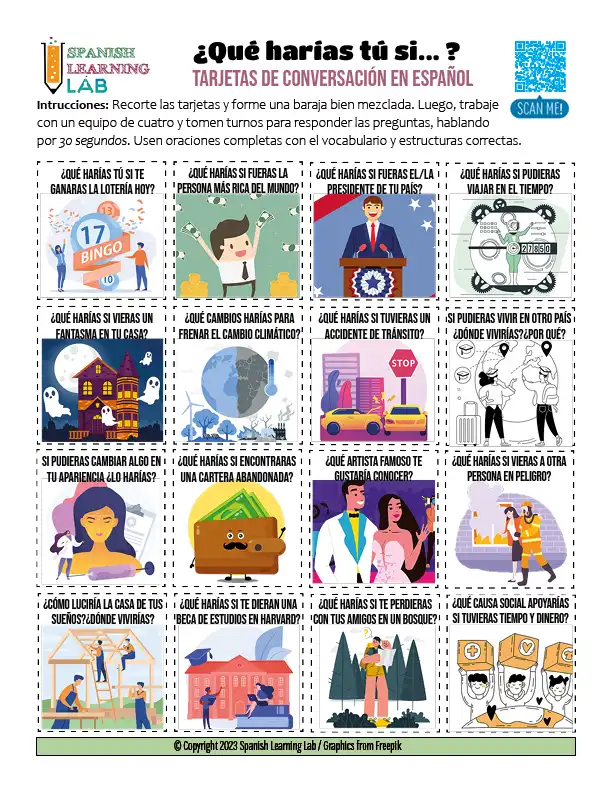¡Hola! Thanks for joining us. This time, we are sharing a great PDF worksheet including a set of conversation cards in Spanish with key questions asking students what they would do in specific situations they might encounter. This material will give students a good opportunity to practice speaking with your friends or classmates.
Directions:
Students form groups of four to participate in this speaking activity.
Each group of students gets a copy of the PDF worksheet. First, they must cut out the conversations cards, which include sixteen different conversation cards with questions in Spanish on hypothetical situations, things such as: what they would do if they won the lottery, what they would change about their lives or their surroundings, and so on. Students must form a deck with the conversation cards, shuffle it, and take turns to draw a card at a time. After that, they should give a 30-seconds reply adding real or make-believe information about the things they would do if they found themselves in that specific situation. Also, they should answer just in Spanish, making a relatively good use of the vocabulary and grammar structures for the different topics included in the worksheet, otherwise, the card must be returned to the deck. The student who follows these rules and holds the most cards by the end of the game wins.
Spanish worksheet information:
Level: Intermediate
Skill: Speaking
Related Lessons:
- Expressing Wishes in Spanish: Examples and Listening Practice
- Making Future Plans in Spanish: IR + A + Infinitive
- Giving Advice and Making Suggestions in Spanish

Class activity: Money and priorities
In this speaking activity, students work in groups of four to speculate about the things that they would do if they inherited a lot of money. They discuss different possibilities in Spanish and choose the top three things they would definitely do if they had the money and time to do so. Then, they present and justify their choices to the rest of the class. Their teacher provides some feedback on grammar and vocabulary use.
